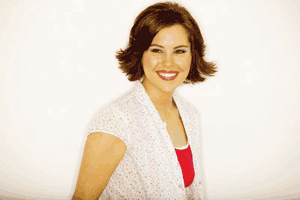
...And the Pursuit of Happiness
Okay, I know I did not come up with those iconic and much-loved words.
Thomas Jefferson did. He penned them into our nation’s Declaration of Independence, giving form to the yearnings of people who would ban together to create a new nation and signaling hope to others all around the world — even today. As a schoolgirl first learning about our Declaration of Independence, I wondered why, if happiness were an “inalienable right”— as Jefferson put it, why was I not always happy? Why was I happy some days, unhappy at other times and just blah in between the highs and the lows?
What young Margaret was overlooking are the key words, “the pursuit of.” Jefferson was not saying that all people have a right to be happy. He articulated that we have a right to try to be happy.
Splitting hairs? Not really.
But what is happiness and is it good for us?
Happiness is certainly different for all of us, but for me it often involves spending time with family and friends, knowing that the people I love are safe, well and seemingly happy themselves. I experience what I feel as happiness, for example, around the dining table with people I care for as we share ideas, stories and each other’s lives. Good food, often prepared together, enhances the experience. I suspect most people have similar definitions of happiness — not so much winning the lottery as enjoying ordinary life with those we most care about.
That may not be the ultimate happiness, though.
Researchers at the University of North Carolina at Chapel Hill and University of California, Los Angeles released results of a study earlier this month indicating that all happiness is not created equal — that some kinds of happiness are better for us than others. It sounds like if we want to be both happy and healthy, we need to focus less on our own happiness and more on that of others.
The researchers found that while we cannot measure our emotions, including happiness, the way we measure height and weight, they do have physical components. Happiness can improve our health in various ways, reducing our risk of heart disease, stroke, maybe even cancer. But, they say, the kind of happiness I find being in the company of loved ones is really a self-centered form of happiness that makes my immune system act as if it were under stress, which is not usually a good thing. Long-term stress is known to weaken our immune systems, leaving them more vulnerable to all sorts of diseases. We cannot see all of this, of course, because it is a swirling chemical mix that affects our bodies for good or for ill, but science tells us it is real, nonetheless.
Happiness focused on others or on one’s own purpose in life, however, causes a positive reaction in our immune systems.
Most of us have experienced such happiness although we might not have realized what a positive force it is in our bodies. I think about a third grader I once tutored whose reading improved as I helped him. I think about a single mother and her children whom my family “adopted” one Christmas, and a horse my daughter and I found running loose on a rural road. She caught him and we returned him safely to his own barn.
I did not love that 3rd grader or the single mother the way I love my family and friends, and I was actually a bit nervous around the horse who was much, much bigger than my daughter and me. But I did feel good about helping in each instance, and that is the kind of happiness the researchers say is positive for our health.
UNC psychology professor Barb Fredrickson, the primary author of the study, says there are many ways to find happiness, all of which are important to our well-being. She has found meaning in her own life by writing books using her scientific expertise but meant to help a broad audience. “This is my way to make a positive contribution to society,” Fredrickson says. “And it makes me feel good, too.”
Fredrickson adds that much is left to be learned about happiness and that the key to good health over the long haul may be balancing different kinds of happiness.
This sounds like another example of what everyone’s mother told us growing up — that moderation in all things is the secret
of life.
And it may be confirmation, yet again, of why we should do unto others as we would have them do unto us.

 How to resolve AdBlock issue?
How to resolve AdBlock issue? 








